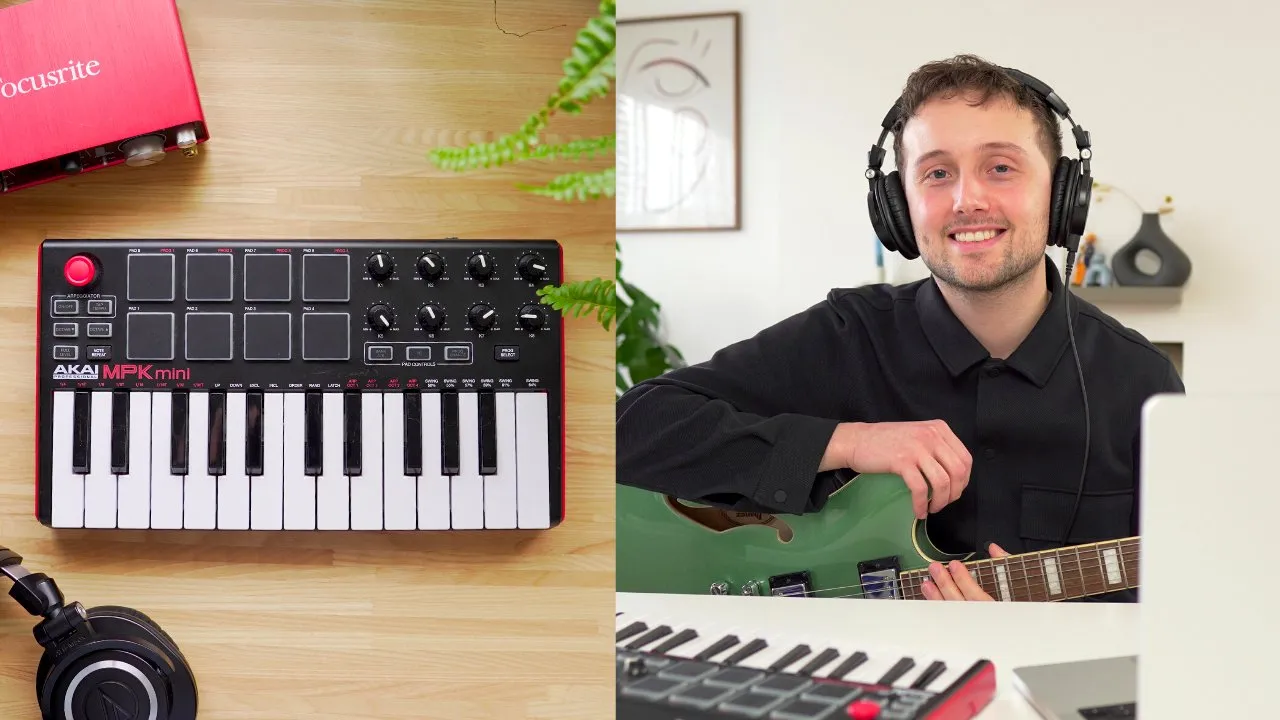
Music Theory for Electronic Music Producers 
This course provides an in-depth exploration of Music Theory and its application to electronic music production. Students will learn about major and minor scales, chords, chord progressions, and other techniques and formulas to create their own unique sound. With this knowledge, they will be able to create their own electronic music with confidence. ▼
ADVERTISEMENT
Course Feature
![]() Cost:
Cost:
Free Trial
![]() Provider:
Provider:
Skillshare
![]() Certificate:
Certificate:
Paid Certification
![]() Language:
Language:
English
![]() Start Date:
Start Date:
On-Demand
Course Overview
❗The content presented here is sourced directly from Skillshare platform. For comprehensive course details, including enrollment information, simply click on the 'Go to class' link on our website.
Updated in [March 06th, 2023]
Unlock the Exciting World of Learning! Here's What Awaits You:
This course will provide learners with a comprehensive understanding of music theory and its application to electronic music production. Learners will gain an understanding of major and minor scales, chords, chord progressions, modulation, relative majors and minors, modes, song analysis, and how to write a song from a drumbeat, chord progression, or melody. Additionally, learners will learn how to write melodies and harmonies, work out keys and scales, pentatonic scales, and more. With this knowledge, learners will be able to create their own unique and creative electronic music compositions.
[Applications]
Upon completion of this course, students should be able to apply the concepts and techniques learned to create their own electronic music. They should be able to identify major and minor scales, chords, chord progressions, modulation, relative majors and minors, modes, and more. They should also be able to write melodies, harmonies, and songs from drumbeats, chord progressions, and melodies. Additionally, they should be able to work out keys and scales, pentatonic scales, and more.
[Career Paths]
The career paths recommended to learners of this course are:
1. Music Producer: Music Producers are responsible for creating and producing music for various media outlets, such as films, television shows, video games, and commercials. They work with composers, musicians, and sound engineers to create the desired sound. Music Producers must have a strong understanding of music theory and be able to work with a variety of musical styles. The demand for Music Producers is increasing as the music industry continues to grow.
2. Music Composer: Music Composers are responsible for creating original music for various media outlets. They must have a strong understanding of music theory and be able to work with a variety of musical styles. Music Composers must be able to work with a variety of instruments and be able to create music that is both creative and technically sound. The demand for Music Composers is increasing as the music industry continues to grow.
3. Sound Engineer: Sound Engineers are responsible for creating and recording sound for various media outlets. They must have a strong understanding of music theory and be able to work with a variety of musical styles. Sound Engineers must be able to work with a variety of instruments and be able to create sound that is both creative and technically sound. The demand for Sound Engineers is increasing as the music industry continues to grow.
4. Music Educator: Music Educators are responsible for teaching music theory and techniques to students of all ages. They must have a strong understanding of music theory and be able to work with a variety of musical styles. Music Educators must be able to work with a variety of instruments and be able to teach music that is both creative and technically sound. The demand for Music Educators is increasing as the music industry continues to grow.
[Education Paths]
The recommended degree paths for learners of this course are:
1. Bachelor of Music in Music Theory: This degree program provides students with a comprehensive understanding of music theory, including topics such as harmony, counterpoint, form, and analysis. Students will also learn about the history of music and its development over time. This degree is becoming increasingly popular as more people are interested in learning about music theory and its application to electronic music production.
2. Master of Music in Music Technology: This degree program focuses on the use of technology in music production. Students will learn about the latest software and hardware used in music production, as well as the principles of sound design and synthesis. This degree is becoming increasingly popular as more people are interested in using technology to create their own music.
3. Bachelor of Arts in Music Production: This degree program focuses on the production of music, from recording and mixing to mastering and post-production. Students will learn about the different aspects of music production, such as sound engineering, music theory, and music business. This degree is becoming increasingly popular as more people are interested in producing their own music.
4. Master of Arts in Music Composition: This degree program focuses on the composition of music, from writing and arranging to orchestration and performance. Students will learn about the different aspects of music composition, such as harmony, counterpoint, and form. This degree is becoming increasingly popular as more people are interested in composing their own music.
Pros & Cons

Clear and straightforward presentation.

Easy to understand for beginners.

Emphasizes important points.

Comprehensive and well constructed lessons.

Great teacher and very complete.

Limited to electronic music producers.

Not suitable for those with no knowledge of music theory.

Not enough time to cover all topics.

Not enough practice exercises.

No follow up support.
Course Provider

Provider Skillshare's Stats at AZClass
Discussion and Reviews
0.0 (Based on 0 reviews)
Explore Similar Online Courses

PLC Sequencer Logic

Bodyweight Fitness Muscle Building & Fat Loss (Home Workout)

Python for Informatics: Exploring Information

Social Network Analysis

Introduction to Systematic Review and Meta-Analysis

The Analytics Edge

DCO042 - Python For Informatics

Causal Diagrams: Draw Your Assumptions Before Your Conclusions

Whole genome sequencing of bacterial genomes - tools and applications

Orchestral Music Composition & Music Theory for Video Games

Music Theory for Songwriters: From Beginner to Producer

Music Theory Level 1: Part Five
 Related Categories
Related Categories
 Popular Providers
Popular Providers
Quiz
 Submitted Sucessfully
Submitted Sucessfully
1. What is the main focus of this course?
2. What topics will be covered in this course?
3. What will you learn in this course?


Start your review of Music Theory for Electronic Music Producers